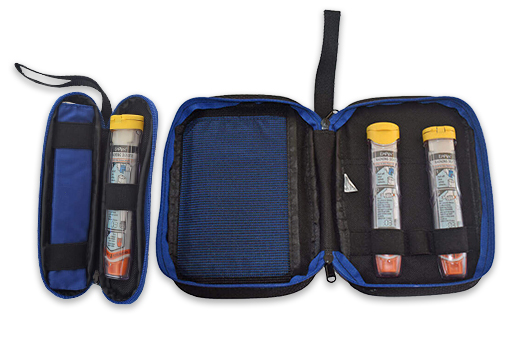1. Check-in with your doctor
It’s a good idea to see your doctor before you travel. They can provide you with updated prescriptions if needed, both for EpiPen® and other medications you require while you’re away. Also, ask your doctor for an ASCIA Travel Plan for people at risk of anaphylaxis (severe allergic reaction). This document explains why you need EpiPen® and that EpiPen® should be kept nearby during flights. Always keep your Travel Plan together with your ASCIA Action Plan and your EpiPen® Auto-Injectors. Click here for more information on making your travel plan.
2. Contact your airline, hotel, or cruise line
Tell your travel agent, airline, hotels and other relevant organisations about your food allergy or other allergy triggers before making any bookings. That way, you can reassure yourself about their allergy policies and ask about carrying EpiPen® in your hand luggage.
3. On your plane, train, or ship
Remember you may need to reach your EpiPen® Auto-Injector with your seatbelt fastened on a flight, so keep it close to you, not in the overhead locker. Once onboard your ship, intercity train, or plane, it’s also a good idea to inform attendants about your allergies and where they can find your ASCIA Action Plan and EpiPen®.
4. Learn the language
If you are travelling to a non-English speaking country, it’s a good idea to use a translation app to learn how to explain your allergens. You can also download translation cards in different languages. Click here for more information on travelling and a link to translation cards.
5. Make a plan
At each travel destination, make a plan about what you will do if you need anaphylaxis first aid and ensure you know how to call an ambulance if you need one. And don’t forget to take EpiPen® with you wherever you go. Click here to read more about planning for a great holiday.
























